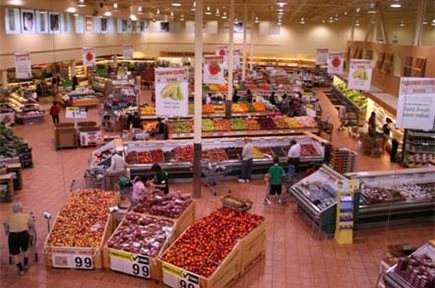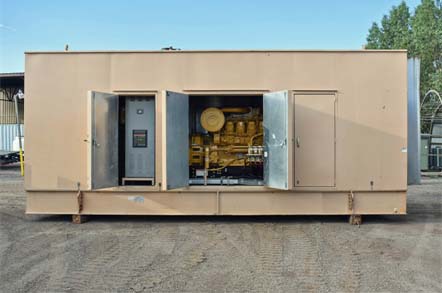Puerto Rico Food Storage Uses Emergency Power
Food storage warehouses are climate controlled and must have emergency power during a utility outage.
Food Storage Facilities
Wholesale and retail are two styles of food storage facilities. Wholesale facilities are generally constructed as large warehouses. They supply inventory to retail installations, such as restaurants and grocery stores. It is common for the building to have more than one climate-controlled area. Standard areas are:
- Dry Cooler - Evaporative style system with air circulating around cooling medium. Temperature is reduced by evaporation of water, which is sometimes called a swamp cooler. Used for storage of fresh produce and perishable foods.
- Freezer- Comprised of a complete cooling system including, compressor, receiver dryer, condenser and evaporator. It is a pressurized system that cools from medium changing states. Used for storing frozen products.
- Cool Dock Space - Can be climate controlled from the building's Heating Ventilation and Cooling (HVAC) system. This keeps products as close to stored temperature prior to loading and helps with shelf life.
Retail facilities can range from large complexes to small buildings with a single cooler. Large buildings are constructed with HVAC systems to keep produce at the correct temperature level. Multiple freezers store various frozen goods. Coolers store diary items, eggs, fresh meats and fish.
Puerto Rico Facility Requires Generator Power

Power is a critical component in the storage of food supplies. When temperatures increase because of lack of power, shelf life of food decreases. In hot, humid climates the degradation is accelerated. Businesses can suffer large financial losses because of spoiled products. Islands pose an additional level of difficulty when storing perishable products.
Hurricane Maria devastated the electrical infrastructure of Puerto Rico. A National Public Radio (NPR) July 17, 2018 newscast published that thousands of residents are still without power. A mass resignation of the board of directors took place and the announcement of salary cuts.
Hurricane season is fast approaching. Coupled with electrical infrastructure issues, many businesses are choosing to upgrade/install emergency power generation systems. We recently helped out a client in the food storage and distribution industry located in Puerto Rico with a 1000 kW Caterpillar diesel generator. They are now assured that when power fails, they will have an emergency power supply.
The generator pictured here is one of many generators we have sold and shipped to businesses and government facilities throughout Puerto Rico.
Generator Source offers low-hour pre-owned generators for immediate availability and a savings in purchase cost. Visit the
Used Generators section and the
New Generators section of our website to see our generator inventory.
Contact Us with any questions you have.
Diesel Blog Team
| 8/10/2018 3:53:03 PM
|
0 comments